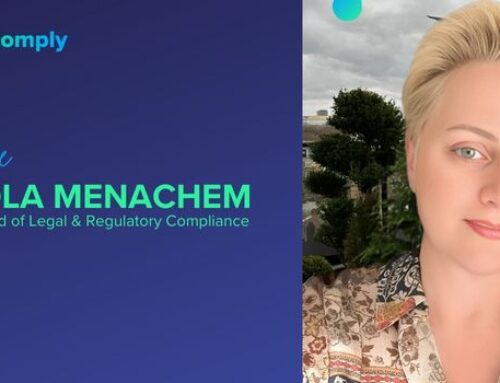One of the defining characteristics of the online gaming industry throughout the 2020s so far has been the increased focus on regulated markets. Around the world, governments from Latin America to Asia are establishing regulated frameworks for online gaming, while the world’s biggest operators are eager to tell the world about their operations in regulated and regulating markets.
As the importance of regulation and compliance is arguably bigger than ever, it is imperative for operators and suppliers to ensure that they are compliant with their licensed jurisdictions.
Mike de Graaff, the firm’s Chief Compliance Officer, told SBC News how the compliance sector is keeping up with the fast-paced nature of regulations this decade.
“It’s crowded and noisy, which happens when opportunities are everywhere,” De Graaff said of the industry. “Markets are opening up, new technology is being developed, new players are entering the scene all the time. There is a lot of movement. Also on the compliance side a lot of movement and changing needs, which is exciting to us as BetComply.”

De Graaff argued that, while there are changes that are happening in the industry, not all of these regulatory frameworks are a positive step: “The expectations of licensed operators in locally, regulated markets are very high. Some might say unreasonably high.” This, he observed, is driving some operators to take up multi-jurisdictional licences in territories such as Anjouan and the Isle of Man.
‘Knee-jerk regulations are not protecting players’
For a compliance expert and industry stalwart, De Graaff did not mince his words in some of his criticisms of the regulatory and compliance sectors and called out some of the ‘blanket-type’ rules imposed on operators by national regulators.
Particularly, he asserted that in heavily regulated markets such as Sweden or Italy, it is too easy for licensed operators to attract negative attention due to public and media pressure.
BetComply’s compliance lead told a story of players turning to media outlets with stories of how much money they lost, the media then alerting the politicians. Then, politicians pressure the regulator, leading them to say the industry is not doing enough.
So, is that the problem solved?
“I don’t believe it is,” De Graaff argued. “The problem that started this domino was (the lack of) player protection. With these seemingly knee-jerk reactions, we don’t protect players more. We pretend they are protected because they can spend less at licensed casinos. But in the meantime we all know, or at least should know, that illegal operators are the ones benefiting from this chain of reactions.
“We need to do better.”
‘Dialogue is essential to gain trust’
In De Graaff’s view, the industry has an overall optics problem, whereby there is an air of distrust between operators and the public, media and political class. Yet, this needn’t be the case, and there are low-hanging fruit solutions.
“We need to involve ourselves more with the other stakeholders to contribute to the better. If I speak from my own experience leading teams, we do better by engaging in discussion with those that disagree with you. It’s easy to convince your side of the aisle, but ultimately that’s not who we need to convince.
“If you want to gain trust with stakeholders outside of your own company, be trustworthy.”
Collaboration and sharing expertise is a mantra that De Graaff is a disciple of. He insists that regulators, operators and all industry stakeholders should share expertise, listen to each-other and establish best practices when it comes to fair regulation and player protection.
He specifically pointed out that the Dutch regulator, Kansspelautoriteit, taking parts of the Danish gambling framework into the Dutch model has been a positive step for the industry. “Denmark is not far from the Netherlands, in the literal sense but also from a demographic and cultural perspective. It made sense, well done.”
Yet, he insists that more can and should be done to promote the sharing of expertise. A key reason for this is that, in De Graaff’s view, operators are overspending in order to become compliant.
Highlighting the UK as a key offender, he noted that operators are adding compliance procedures on top of eachother until their operations are compliant or unprofitable, adding that this strategy is doomed to failure.
Instead, BetComply tells its partners that instead of adding burdensome costs, operators should revisit their compliance strategy as a whole. The firm shares that a streamlined and scalable strategy is not only effective but cost-efficient too.
But overall, De Graaff is eager to see more dialogue between all compliance stakeholders in order to facilitate conversations about increasing the effectiveness of compliance.
Identifying that there are “brilliant minds” in the industry with regards to technology and player protection, De Graaff envisages a future in which people are more confident to vocalise their view and risk failure instead of “pleasing a crowd with nice talking points”.
He concluded: “Some regulators are starting to really engage with industry stakeholders, and we need to see more as well. Sometimes we forget licensed operators and regulators are on the same side of the fence. If the industry participant doesn’t want to follow the regulation, they don’t get a licence.
“From our POV, the compliance experts, I believe we need to do more of what BetComply is doing. Share your opinion, contribute to the whole and do better.”
BetComply will be in attendance at CasinoBeats Summit in Malta from 21-23 May at the Intercontinental Malta. To book a meeting CLICK HERE




